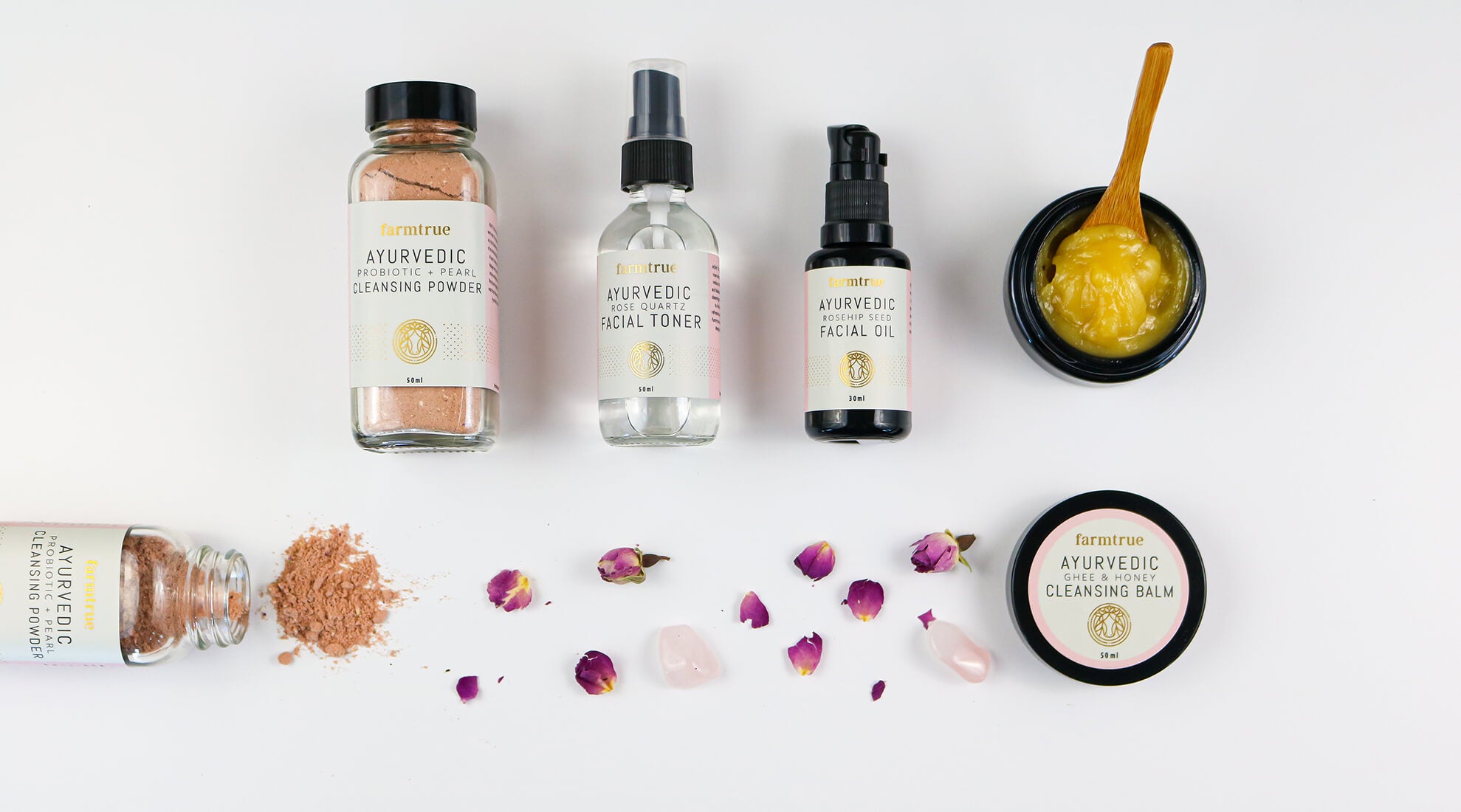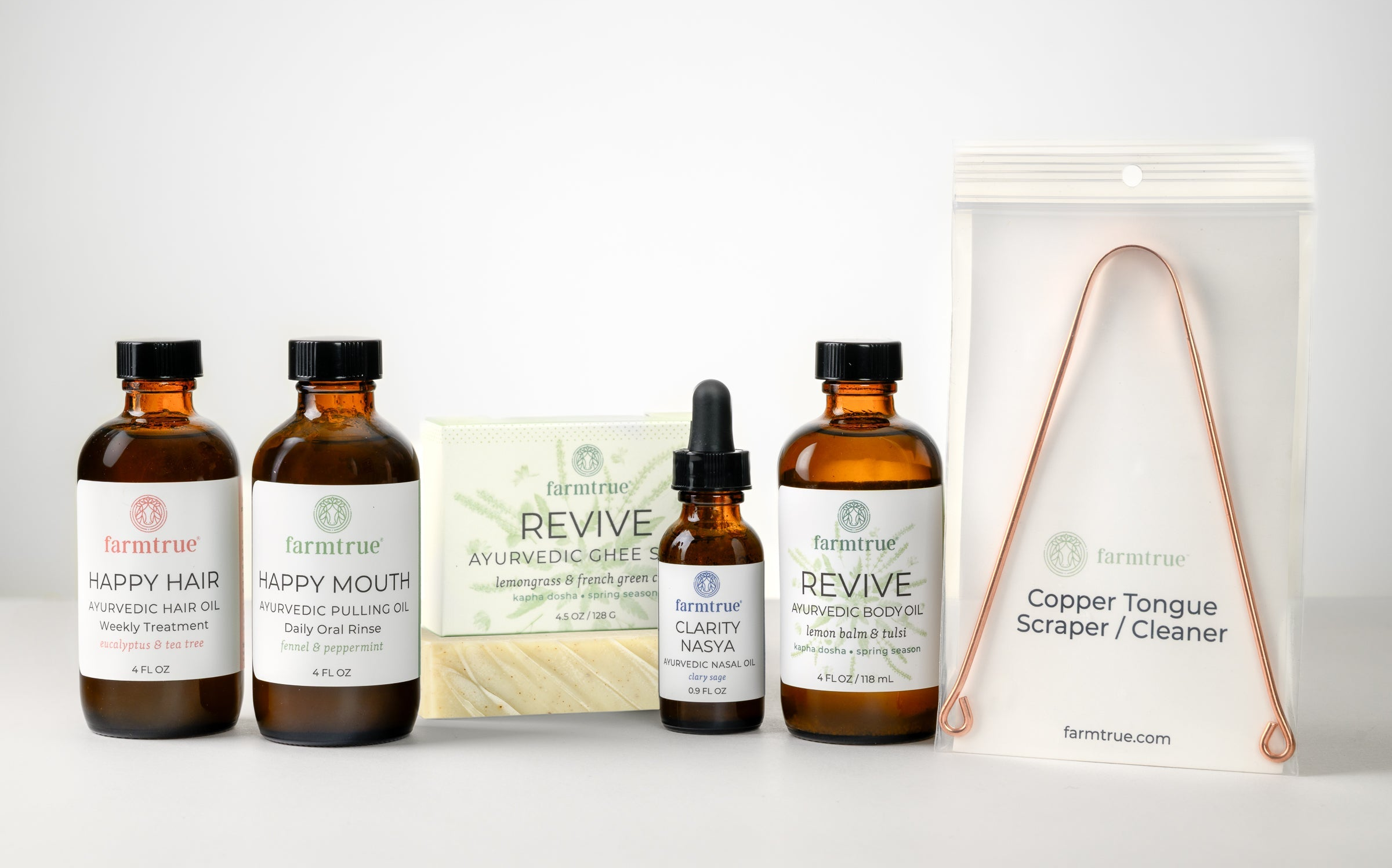
The Ayurvedic Way of Taking Care of Your Oral Health - A Comprehensive Guide
The Ayurvedic Way of Taking Care of Your Oral Health - A Comprehensive Guide

Oral health is a crucial aspect of overall well-being. According to Ayurveda, the ancient Indian system of medicine, maintaining oral hygiene is not just about having a bright smile and fresh breath; it's about preserving the overall health of the body.
This article will delve into the Ayurvedic perspective on oral health and provide practical tips for incorporating Ayurvedic medicine practices for oral care into your daily routine.
Physical and Mental Implications of Oral Health in Ayurveda
In Ayurveda, oral health is seen as a reflection of the overall health of the body. The mouth is the gateway to the body, and the state of your oral health can provide insights into the state of your overall health. Put simply, a healthy mouth equals a healthy being.
Functions of Bodhaka Kapha
Bodhaka Kapha, one of the subtypes of Kapha dosha, resides in the oral cavity and is responsible for maintaining moisture and lubrication in the mouth. It aids in the perception of taste, which is essential for optimal digestion.
When Bodhaka Kapha is balanced, it promotes a healthy oral environment. However, an imbalance can lead to oral health issues like bad breath, dry mouth, poor taste perception, and even oral infections.
Ayurvedic Practices for Optimal Oral Health
Ayurveda offers a range of practices that can help maintain optimal oral health. These practices not only keep your mouth healthy but also contribute to your overall well-being.
Additional Benefits of Having a Healthy Mouth
Good oral health can lead to several additional benefits. It can enhance your digestion, as the process of digestion begins in the mouth.
It can also improve your sense of taste, promote fresh breath, and even boost your confidence by giving you a bright, healthy smile.
How a Healthy Mouth Equals a Healthy Body
A healthy mouth is a sign of a healthy body. Ayurveda believes that many systemic diseases start in the mouth.
Therefore, maintaining good oral hygiene can help prevent various health issues, including digestive disorders, heart disease, and even certain types of cancer.
Take Care of the Gums
Gum health is as important as tooth health.
Ayurveda recommends using a twig from a neem or babul tree for brushing, as these trees have natural antimicrobial properties that can prevent gum disease.
Regular massaging of the gums with sesame oil can also strengthen them and keep them healthy.
Is Tongue Scraper Good for Your Oral Health?
Yes!
Tongue scraping is a crucial part of Ayurvedic oral hygiene. It removes the coating of bacteria, food debris, and dead cells that accumulate on the tongue overnight.
It helps to remove the accumulation of toxins, known as Ama, from the tongue, which can lead to poor digestion, bad breath, and a buildup of harmful bacteria in your mouth.
Tongue Scraping: A Must-Follow Ayurvedic Practice
Tongue scraping is not just about fresh breath; it's about maintaining overall dental health. It stimulates the internal organs, enhances the sense of taste, and promotes general detoxification. Learn more about our Copper Tongue Scrapers here.
Is Tongue Scraping Good for Your Taste Buds?
Tongue scraping is not just beneficial for maintaining optimal oral hygiene, but it also has a significant impact on your taste buds.
Treat it like a treat for your taste buds by removing the coating of bacteria, food debris, and dead cells that accumulate on your tongue. Let's delve into how it benefits your taste buds.
Enhances Taste Perception
One of the key benefits of tongue scraping is that it can enhance your sense of taste. Our taste buds are responsible for detecting five basic tastes: sweet, sour, salty, bitter, and umami.
However, when your tongue is coated with a layer of bacteria and food debris, your taste buds can't function optimally. By scraping your tongue, you remove this coating and expose your taste buds, which can enhance your taste perception.
Prevents Taste Bud Enlargement
Neglecting tongue hygiene can lead to the enlargement of taste buds, also known as transient lingual papillitis. This condition can cause discomfort and affect your sense of taste.
Regular tongue scraping can prevent this issue by maintaining a clean and healthy tongue.
Tongue Scraping is Also Good for Your Digestive Health
A clean tongue and enhanced taste perception can improve your digestion. When you can taste your food better, it stimulates the production of digestive enzymes, which aids in the digestion process.
How Many Times Should You Use Tongue Scrapers?
Ideally, you should scrape your tongue every morning as part of your oral hygiene routine. This practice helps to remove toxins and bacteria and freshen your morning breath up.
Anti-Microbial Copper Tongue Scraper
Ayurveda recommends using a copper tongue scraper due to its antimicrobial properties. Copper can kill harmful bacteria and prevent them from accumulating on the tongue.
To ensure you're getting the best quality, consider the Ayurvedic Copper Tongue Scraper from Farmtrue. It's not just a tool, but a health investment.

Its ergonomic design ensures a comfortable grip, making your morning routine more effective and enjoyable. Plus, it's a simple step towards boosting your immune system and maintaining oral hygiene.
Step-by-step Guide on Using Your Copper Tongue Scraper
Here is a simple 6-step guide to performing an effective tongue-scraping using your copper tongue scraper:
Step 1: Wake up and Scrape
The first thing you should do upon waking, even before you take a sip of water, is to scrape your tongue. This is because your body goes through detoxification processes as you sleep. Unhealthy bacteria and toxins are expelled from your body, some of which accumulate on your tongue.
Step 2: Inspect Your Tongue
Extend your tongue out of your mouth and inspect for a coating. This coating is the Ama or toxic residue that has accumulated overnight.
Step 3: Position Your Scraper
Hold the tongue cleaner on either side. Place the tongue cleaner towards the back of your tongue.
Step 4: Scrape Gently
Gently scrape the Ama or film forward and out of the mouth. Be careful not to scrape too hard or too far back on your tongue to avoid discomfort or gagging.
Step 5: Rinse and Repeat
Rinse the Ama off of the tongue cleaner and repeat until the tongue is clean. You should see less and less residue on the scraper as you continue the process.
Step 6: Follow With Oil Pulling
After scraping, it's recommended to follow up with an Ayurvedic practice called oil pulling, which involves swishing oil around in your mouth to further cleanse and support oral health.
Clean Your Tongue Scraper
Keeping your tongue scraper clean is crucial to prevent the buildup of bacteria. Here's how to clean your copper tongue scraper:
Step 1: Rinse with Warm Water and Soap
After each use, rinse off your tongue cleaner with warm water and all-natural soap.
Step 2: Wipe Dry
Wipe it dry with a soft cloth to prevent water spots and to keep it ready for your next use.
Step 3: Deep Clean Occasionally
For a deeper clean, take a ¼ slice of lemon and dip it into pure Himalayan salt. From one end to the other, clean your tongue cleaner with the salt-dipped lemon wedge.
This will help eradicate any hard-to-remove plaque from the tongue cleaner and restore the beauty of the copper.
Remember, the Ayurvedic practice of tongue scraping is not a substitute for brushing and flossing, but it's a beneficial addition to your oral hygiene routine. It's a quick and easy practice that can make a significant difference in your oral health.
Brushing and Flossing... And Make it Ayurvedic

Brushing and flossing are essential components of oral hygiene, and Ayurveda offers a unique perspective on these practices. Here's why brushing and flossing the Ayurvedic way is important:
Promotes Oral Health
Ayurvedic brushing and flossing techniques help to remove plaque and bacteria from the teeth and gums, preventing tooth decay and gum disease. They also help to freshen the breath and maintain the health of the tongue, which is considered an important organ for digestion in Ayurveda.
Stimulates the Gums
Ayurvedic tooth brushing involves massaging the gums, which can stimulate blood flow and keep the gums healthy. Flossing, on the other hand, helps to clean the spaces between the teeth that your toothbrush can't reach.
Balances the Doshas
According to Ayurvedic principles, different parts of the tongue correspond to different organs of the body. Brushing the tongue can help to stimulate these organs and balance the doshas, which are the three fundamental energies (Vata, Pitta, and Kapha) that govern the body's functions.
Enhances Taste Perception
Brushing the tongue can also enhance the sense of taste, which is essential for good digestion. It helps to remove the coating of bacteria and food debris from the tongue, allowing the taste buds to function optimally.
Promotes Digestion
In Ayurveda, digestion is considered the cornerstone of health. Good oral hygiene practices, including brushing and flossing, can improve digestion. They help to stimulate the production of saliva, which contains enzymes that kickstart the digestion process.
How to Brush and Floss the Ayurvedic Way?
Daily brushing with an eco-friendly bamboo toothbrush with charcoal-infused bristles and coconut oil toothpaste offersAyurvedic practitioners alternatives to traditional oral hygiene products.
The charcoal's natural detoxifying properties aid in effective teeth and gum cleaning, while the antimicrobial properties of coconut oil toothpaste help prevent tooth decay and gum disease, also contributing to natural teeth whitening.
Toothbrush Eco-Friendly Bamboo - Charcoal Infused Bristles

An eco-friendly bamboo toothbrush with charcoal-infused bristles is a great Ayurvedic alternative to conventional toothbrushes. Charcoal has natural detoxifying properties that can help clean teeth and gums effectively.
Coconut Oil Toothpaste
Coconut oil toothpaste is another Ayurvedic recommendation. Coconut oil has antimicrobial properties that can prevent tooth decay and gum disease. It also helps to whiten the teeth naturally.
Practice Oil Pulling
Oil pulling is an ancient Ayurvedic practice for maintaining oral health. It involves swishing oil, usually sesame or coconut, in the mouth for a few minutes and then spitting it out.
This practice helps to remove toxins and bacteria from the mouth and promotes fresh breath and healthy gums.
Recommended Oil-Pulling Products
There are several oil-pulling products available in the market today. However, Ayurveda recommends using pure, organic oils for this practice.

If you're looking to incorporate this practice into your routine, consider the Ayurvedic Self-Care Beginner Bundle from Farmtrue. This bundle includes not only a high-quality Pulling Oil but also a variety of other Ayurvedic skin and body care products. It's a great way to introduce ancient Ayurvedic practices into your routine, or it can make the perfect gift for someone looking to explore Ayurvedic self-care.
How Long to Oil Pull
Ideally, oil-pulling takes about 15-20 minutes every morning before brushing your teeth. However, if you're new to this practice, you can start with just a few minutes and gradually increase the duration of your morning routine.
Benefits of Oil Pulling
Whether you're looking to reduce plaque, improve your breath, or prevent gum disease, oil pulling can be a beneficial addition to your oral hygiene routine.
Benefit 1: Kills Harmful Bacteria in Your Mouth
Your mouth is home to hundreds of different types of bacteria. While some of them are beneficial, others can be harmful and lead to oral health issues like tooth decay and gum disease. Oil pulling helps to kill these harmful bacteria and keep your mouth clean.
Benefit 2: Reduces Plaque
Plaque is a film of bacteria that coats your teeth. If dental plaque is not removed, it can harden into tartar and lead to gum disease. Oil pulling can help reduce the formation of plaque and prevent these issues.
Benefit 3: Prevents Tooth Decay
By removing harmful bacteria and reducing plaque, oil pulling can help prevent tooth decay. It's a natural and effective way to maintain your oral health.
Benefit 4: Prevents Bad Breath
Bad breath, also known as halitosis, is often caused by the bacteria in your mouth. Oil pulling can help to eliminate these bacteria and improve your breath.
Benefit 5: Improves Gum Health
Gum diseases in gum tissue are a common oral health issue that can lead to tooth loss if not treated. It's often caused by the buildup of plaque on the gums. By reducing plaque, oil pulling can help improve gum health and prevent gum disease.
Benefits of Rinsing the Mouth with Triphala Churna
Triphala Churna is a traditional Ayurvedic formulation made from three fruits: Amalaki, Bibhitaki, and Haritaki. Rinsing the mouth with a solution of Triphala Churna can help to strengthen the gums, freshen the breath, and prevent oral infections.
How to Prepare and Do a Triphala Rinse
To prepare a Triphala rinse, mix a teaspoon of Triphala Churna in a glass of warm water and let it sit overnight.
In the morning, strain the solution and use it as a mouthwash.
Swish it around in your mouth for a few minutes, and then spit it out.
Note: Do not swallow the solution.
Conclusion

Taking care of your oral health in the Ayurvedic way can provide numerous benefits, not just for your mouth but for your overall health.
By incorporating these practices into your daily routine, you can maintain a healthy mouth and a healthy body. Remember, a healthy mouth is a sign of a healthy body, and Ayurveda provides a holistic approach to achieving this balance.



